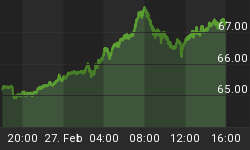Article by Justin Spittler for Casey Research
Los Angeles wants to blow billions of tax dollars...
The Olympics are a spectacle. The athletes are incredible to watch. But hosting the games is a usually a big money-loser for the venue city.
Russia went $39 billion over budget hosting the 2014 Sochi games. Vancouver ended up $1 billion in debt after hosting the 2010 Winter Olympics. Athens spent about $16 billion - roughly 5% of Greece's GDP - on the 2004 Summer Olympics. Some economists say the huge cost even contributed to Greece's debt crisis.
Now Los Angeles wants a turn to lose money. On Tuesday, it was named as the U.S. bid to host the 2024 Summer Olympics.
Los Angeles thinks holding the Olympics would cost $4.1 billion in taxpayer money, plus another $1 billion it hopes to get from private partners. The city has already guaranteed it would cover any additional costs.
As Bloomberg Politics explains, there's zero evidence that the Olympics provide any economic stimulus to the host city.
"They have a lot going for them, but there are risks involved," said sports economist Andrew Zimbalist, who wrote a book about the costs of the Olympics and the World Cup. "Every city we've looked at since 1960 that's hosted the Olympics has had a cost overrun. There's not any evidence that this helps the city economically."
Zimbalist estimates the city, with an annual budget of about $8 billion, should expect cost overruns of as much as $2 billion.
State and local governments make bad financial decisions all the time
On Tuesday we explained how public pensions have promised to pay $4.7 trillion they don't have. And there's no way to close the gap. It would require every man, woman, and child in the United States to fork over $15,000.
Our analysis struck a nerve with some readers. So today we'll dig further into the pension crisis by looking at Illinois...
Illinois' pension system is the worst shape of any state
Illinois only has 22 cents for every dollar it has promised to pay its public employees, according to think tank State Budget Solutions.
Reuters explains that Illinois got itself into this mess through "years of skipping and skimping on contributions and sweetening benefits for a mainly unionized workforce."
The Wall Street Journal points out that Illinois' financial position keeps getting worse.
[Illinois'] pensions are underfunded by $111 billion-a 500% increase from 1995 and up 75% in the past five years. About one in four state tax dollars already finances pensions, which is more than Illinois spends on education.
And failing to set aside enough money is only part of the problem. The Wall Street Journal continues:
Less than 40% of the increase in the state's unfunded liability since 1995 is due to inadequate payments. The rest is due mainly to benefit growth and faulty actuarial assumptions such as investment rate of return.
"Faulty actuarial assumptions" means Illinois expects to earn an extremely high rate of return on its investments. As we explained yesterday, U.S. public pensions expect to earn 8% per year on average. That's a wildly optimistic assumption, even in a "normal" investing climate.
And we're not in a normal investing climate. The Fed's zero interest rate policy has made it practically impossible to earn a safe, decent return. States have virtually zero chance at earning 8% per year today. The average public pension earned just 3.4% last year.
Illinois' pension system is a slow motion train wreck
And its government refuses to fix it.
In May, the Illinois Supreme Court overturned a landmark 2013 pension reform law. The law would have lowered payments to some pensioners. It was a small step toward fixing a broken system.
But the Illinois Supreme Court struck the law down because Illinois' constitution says pension benefits promised to public workers cannot be "diminished or impaired."
In other words, Illinois public pensions are "untouchable."
To recap
Illinois doesn't have anywhere near enough money to keep the promises it has made to public employees.
And.
It is illegal for Illinois to not pay what it has promised to public employees.
We see two possible outcomes here.
One, Illinois will have a full-blown pension crisis. Its pension liability will grow and grow until it eats up all tax revenue and bankrupts the state government.
Two, taxpayers will be on the hook. This is the most likely outcome. As a taxpayer, you're the backstop for these promises. Governments don't produce any money. They can only extract money from their citizens as taxes.
This isn't just an Illinois problem.
Barron's explains how nearly every state pension in the country is "untouchable."
Benefit protections are as common as underfunded pensions. Only two states-Texas and Indiana-haven't provided employees with verbiage against changing the terms of government pensions. None of the states have enforced the corresponding obligation to make full advance funding of benefits as they are earned.
No matter what state you live in, don't be surprised if your government eventually picks your pocket to pay state employees.
Here's our advice: learn how to legally move some of your money out of your government's reach. We published a new book that shows you simple strategies for doing this. And until we run out of copies, we'll send you one for virtually nothing. We just ask that you pay $4.95 to cover our processing costs. Click here to claim your copy.
The article How to Stop a Pickpocket was originally published at caseyresearch.com















